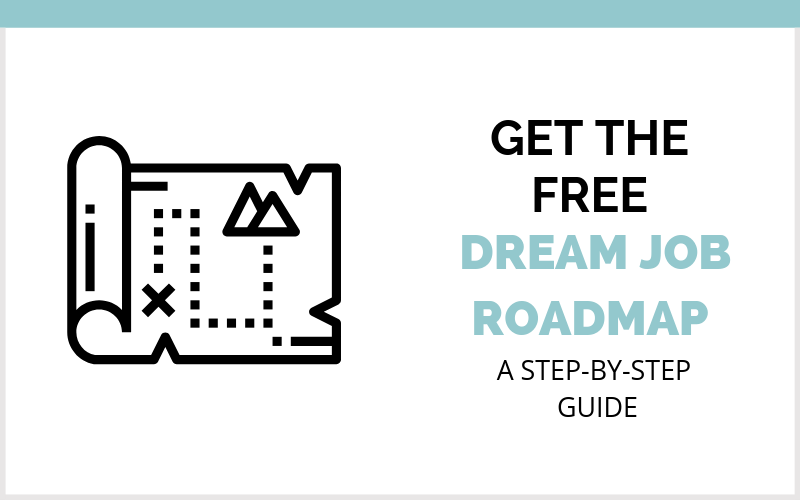The question, “What were you last making or currently making in your job?” is so simple, yet so powerful. In salary negotiations, the person who states a number first often is typically the one who sells themselves short. This question has become a major issue that has prompted several states and cities to ban it from the application and interview process with the salary privacy bill.
RELATED: The Key to Winning the Salary Negotiation Battle
Salary Privacy Bill: These Cities and States Can No Longer Ask You for Your Previous Salary
Why The Previous Salary Question Hurts You
Let’s review why divulging previous salaries can be highly disadvantageous for candidates:
- Women are known to be paid on average 80 cents per dollar to their equal male counterparts
- Candidate may be currently paid below market value
- Candidate may be making an industry, title, or location change where previous salary doesn’t equate (i.e. – non-profit to for-profit; education to tech)
- Candidate may have a robust benefits package that increases their total compensation
- The new role candidate is applying to may have more responsibilities and qualifications required
Introducing the Salary Privacy Bill
Companies know exactly what range they have budgeted for the role based on their internal and external market data. A candidate’s last salary has no impact on their qualifications nor the new responsibilities. Fortunately, law makers are recognizing the need to move towards transparent and fair pay practices and the following cities and states have banned private employers from asking this question:
1. California – Yes, as of October 12, 2017 the state with the largest workforce just declared they will be banning this question throughout the application process! The salary privacy bill will officially roll into effect January 1, 2018.
2. Massachusetts
3. Oregon
4. Delaware
5. New York City
6. San Francisco
7. Philadelphia
8. Pittsburgh
“I would feel more comfortable skipping this question pursuant to the Salary Privacy Bill.”
Salary Negotiation Etiquette
So far, we have 4 states and 3 cities who have adopted this banned question. In the case you find yourself in an interview or filling out an application for a position in one of these locations, you can politely decline with, “I would feel more comfortable skipping this question pursuant to the Salary Privacy Bill.” Their HR should understand what this is and if not, they will be grateful you have educated them as they should be aware of this labor law.
I hope all 50 states will follow suit soon so candidates can feel confident employers are paying them at fair market value. Better yet, companies should be transparent about their salary grades as government job descriptions list. This would drastically improve the hiring process to attract candidates that match the salary range instead of dancing back and forth between unknowns.
Salary Negotiation Power
If your previous salary is actually much higher than the offered salary, now is a good time to disclose what your salary actually was. The banned salary question from employers is to protect candidates from being low-balled. I’m thrilled to see these cities and states correcting undervalued employees with this small step.

I’m curious: what your thoughts are on these measures? Do you think private employers should display salaries? What are the pros and cons of taking this action? Would you, as a candidate, want your salary known to the world and easily researched like government databases? Leave your comments below and join in on the discussion.














This is a nice informative post. I didn’t even know if we had the option to not disclose oir salary or if we could have this option open. This will be a great step towards improving the salary difference between genders and also based on the job role.
Yes, Preet! Most definitely! 🙂 Thanks for stopping by!
I hate answering this question in interviews. I always want to say “What does is matter what I was making I’m applying for a NEW job to better my circumstances” but I usually just say “I’d rather let my experience speak for my worth.
Haha Jane! Imagine having an unfiltered interview… lol that would be very funny. “Why did you leave your last job?” Answer: I could do my job better than my boss. Oh, boy! If anything, interviews gauge common sense and political correctness.
i like that some states are prohibiting asking for previous salaries. in most cases it is not helpful for the applicant/candidate.
Yes, most people, especially women, tend to undervalue themselves.
salary is always a difficult topic particularly during an interview. In the past I think i wasn’t confident enough and under valued myself.
Glad that was the past! You’re in control of your future. 🙂
I think employers should provide information on salaries even if a bracket because otherwise many people apply for jobs who then aren’t interested and it wastes everyone’s time (I use to work in recruitment )
Morgan I agree! Pay transparency would eliminate all of the back and forth that’s for sure.
That is very interesting information! I had no idea that in some states they can’t ask you how much you make! Great tips thank u 🙂
You’re welcome, Sarah! Thanks for stopping by and being a savvy candidate!
Honestly I think this should be off the table in all states. What another company was paying me has nothing to do with this new company. Start with industry start then we can go up from there if my skills prove to be more valuable.
Amen, Aitza!!
I had no idea that some places allowed perspective employers to ask this…
Almost all of them do! It usually comes up either the first or second round interviews, certainly by the final.
I think this ranks up there with, “Do you have any challenges that would prevent you from fulfilling the duties of this job?” Well, pursuant to the ADA (Americans with Disabilities Act), I’m declining to answer that question. I do hope New England states likewise adopt this bill and no longer ask about pay rates. I’m at the opposite side of this in some ways, because now that I have a doctorate degree, I most often hear that I’m overqualified and/or a company can’t meet my previous minimum rate that I would accept.
That’s such an interesting perspective, Dr. Lee! Thanks for sharing. Yes, often times you might be overqualified or they cannot afford you but I do believe companies need to get creative in their hiring strategies if they want to retain top talent. Whether that’s stock options, bonuses, flex time, etc., I do believe money is never a motivating factor for strong candidates.
I find talking about salary could be a sensitive issue on first interview but I don’t think I wanted it to be mandatory. Interviewers and applicants should have the opportunity to excercise their rights to disclosure their salary or offer according to the individuals. That’s just my thought!
Agreed – luckily these cities and states have caught on ahead of the curve. Hopefully the rest of the nation will follow suit soon so we can close the gender gap!
Hi Emily – I found your blog on TFD today and really appreciate what you’ve been up to!
As a recruiter, the salary question has always been troublesome. It shouldn’t matter what someone’s been making in their current position, because the role is different in at least some ways from what I’m hiring for. I want to know what they need in order to be happy long-term in this new role – NOT what they are walking away from now.
I remember when Boston was cracking down on the “what are you currently making” question, and thinking the rest of the nation should follow. It’s encouraging to see California catching up!
Thank you so much for the kind words and your thoughtful response! I completely agree though I understand it from a company’s perspective. But transparency is always a golden rule to follow so I think if we can lean towards being more transparent – companies and candidates will benefit.
I do agree with asking salary expectation rather asking previous salary! Each employer has the pre defined salary range for the particular position and wanted to fixed with starting point! As a candidate fixed your expectation first with proper judgement before sitting the interview. Most importantly you are here in the board because you are eligible!